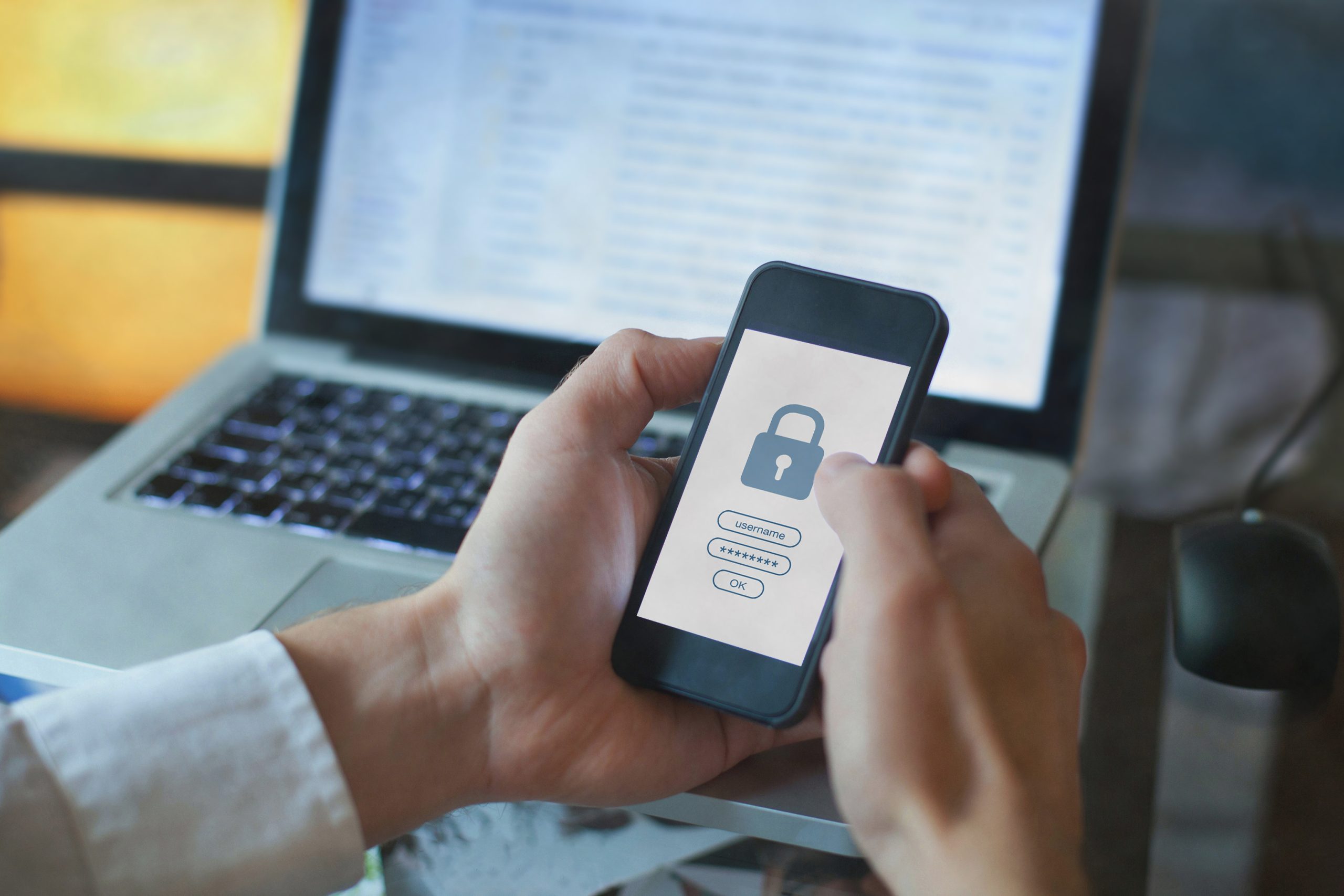This New Year’s, make a practical resolution to be vigilant about protecting yourself and your information online. Hackers are getting smarter and smarter, but by taking a few, practical cybersecurity measures, you may be able to outsmart even the most relentless of hackers. Take a look at the below tips and see if you can implement all 3 in 2022.
- Passwords, Passwords, Passwords!

- Using strong passwords is a simple, but effective method for preventing bad actors from accessing your accounts. A strong password should consist of a combination of numbers, letters (upper and lower case), and special characters. Try using a phrase and substituting numbers and characters for letters, such as “c@TsandD0gsf!ght” (read, cats and dogs fight).
- Even if you come up with the strongest password you can think of, that doesn’t mean you should use it for all of your accounts. You should use a unique, strong password for each account. This is because if a hacker gains access to your login credentials from one website, they may try to log in to other websites using the stolen credentials.
- Be smart about storing your passwords. Having a unique, strong password for every online account is great for protecting your accounts, but can make it difficult to remember all of your different passwords. If you need to write down your passwords, you should store them in a secure, private place. Using a password manager is a great way to safely store all of your passwords.
- Click Carefully
Whether you’re scrolling through social media, reading a food blog online, or reviewing your emails, there are plenty of opportunities for you to stumble across a malicious link. Be careful of pop-ups that ask you to download something or links that, when clicked, take you to websites where you are asked to enter sensitive information, such as your social security number or your credit card number.
Hackers may also send you “phishing” emails that urgently ask you to click a link. The link may contain malware or could take you to a website where you’re prompted to enter your login information so the hacker could steal your credentials. Hackers can make phishing emails appear as if they’re coming from someone you know, so if something seems off, you should contact the sender (using a phone number you have saved or one you find by searching the company online) to confirm if the email is real.
- Keep Security Tight
One of the easiest ways to keep your phone or computer secure is to install security updates from your operating system or web browser as soon as they are available. These security updates are very effective at thwarting hackers. You can set your computer to automatically install any updates so you never miss one.
You should also be sure that your computer has antivirus software installed. Some computers come with antivirus software already installed, but if yours doesn’t, it’s a good idea to install this software from a reputable website.
If, despite your best efforts, a hacker does get through to your email or other account, there are steps you can take to mitigate the amount of damage the hacker can do.
- Immediately change your password to strong, unique password. If you use the same or a similar password for other accounts, you should change those passwords, too. If you are able to log out of all other devices when you change your password, you should be sure to take advantage of that. You should also change your security questions and answers as the hackers may have found this information. Finally, you may want to think about turning on 2-step authentication at this time (or any time, really!).
- Alert your contacts that you have been hacked. If a hacker sent an email to your friends or colleagues pretending to be you, they may be more likely to open the email. Let your contacts know that they should delete any suspicious emails that came from your account so they don’t fall victim to the hacker, as well.
Scan your computer and account for any signs of trouble. You can run a scan of your computer to check if the hacker left any malware behind. Review your account settings to make sure the hackers didn’t set up any email forwarding rules so they could keep reading your emails once they were kicked out. Scan through your emails to see if they may have been able to gain any sensitive information, like your banking information. If so, immediately change your login credentials for the effected accounts.
The information provided is for illustration purposes only. It is not, and should not be regarded as “investment advice” or as a “recommendation” regarding a course of action to be taken. These analyses have been produced using data provided by third parties and/or public sources. While the information is believed to be reliable, its accuracy cannot be guaranteed.

